During his final week working on campus, Tommy Wessel digs a few inches into the frozen soil, pressing his shovel and piercing through the rocky, clay layer.
“Found a rock here. What do you think? I say ancient Cahokian,” Wessel jokes with his ‘work husband.’
“Ancient artifact discovered… We’re shutting the place down,” replies groundskeeper Clint Tucker, who worked closely with Wessel for over a decade.
They laugh as they place a young crabapple tree inside the ground near Morrissey Hall. It’s one of several hundred that Wessel has planted on Saint Louis University’s campus during his 18 years as a groundskeeper.
“I do love trees, and I do love planting them,” Wessel said. “It brings me peace.”
But some of the trees and the grass fields that line SLU’s 273-acre campus in Midtown are invasive species that are “too manicured,” he said. While beautiful to the human eye, Wessel said the landscape is boring, even harmful, to the birds and insects that live in it.
“There is a lot of harm that’s done to the Earth [so] that we can sit here and enjoy the green grass, the very formal look,” he said. “It’s important for people to realize that we’re not the only beings on this planet.”
That is part of why when he turned 40, Wessel decided to leave SLU and pursue his passion: restoring native habitats in Missouri. His last day on campus was Jan. 31.
“I’ve always been very aware of the passing of time, and I feel the need to do something that benefits the Earth,” he said.

“Glue” that kept the grounds crew together
Wessel’s long reddish beard meant he was easily recognizable on campus, and his boisterous personality made him likable among the grounds crew. While on the job with his co-workers, he was loud, energetic and always ready to crack a joke.
He and Tucker even developed a goofy game they played together in between tasks. On a sunny January day, they moved toward a busy walking path to demonstrate. They talked loudly, Wessel changing his regular deep voice to a high-pitched tone. The contrast of a “big guy with a beard” talking silly like a kid usually elicits a few laughs from passersby, Wessel said.
“He’s fun to work with,” Tucker said. “You got to have somebody at work to make it a little more pleasant, you know, can’t always be serious.”
But Wessel also values quiet, contemplative moments, too. During his lunch break, he would find a corner outside and sit alone with a book, usually poetry or New England Legends and Folklore.
“Sometimes I’ll read a chapter, and I was like, well, that’s a good chapter. And so I’ll go back and read the same chapter two or sometimes three times, or a passage. I’ll read it half a dozen times,” said Wessel, who got his avid love of reading from his parents.
When it came to his work responsibilities, Wessel often had a “let me do that attitude,” said Don Weindel, who supervises the grounds team.
“He is always more than happy to help out the fellow co-workers when needed, always,” Weindel said. “We’re gonna be sorry that he’s gone because he was definitely kind of the glue that kept things together.”
Wessel is also trustworthy, said Dave Eaton, a groundskeeper at SLU for nearly 16 years. When the service employees’ union and SLU were negotiating contracts last year, Eaton said he would count on Wessel to relay messages or find out what people were thinking.
Eaton also leaned on Wessel for personal support.
“If you have issues at home or if you have questions about something not related to work, he’s always there to answer those questions or kind of give you ideas or suggestions,” Eaton said.
For Tony Sabat, a SLU distribution services employee, working with Wessel meant good company — and gifts.
“When I worked with Tommy one year, I got so many Christmas gifts because he was my partner, and not too many employees get Christmas gifts,” Sabat said. “He’s gonna be missed so much. Especially [by] me.”
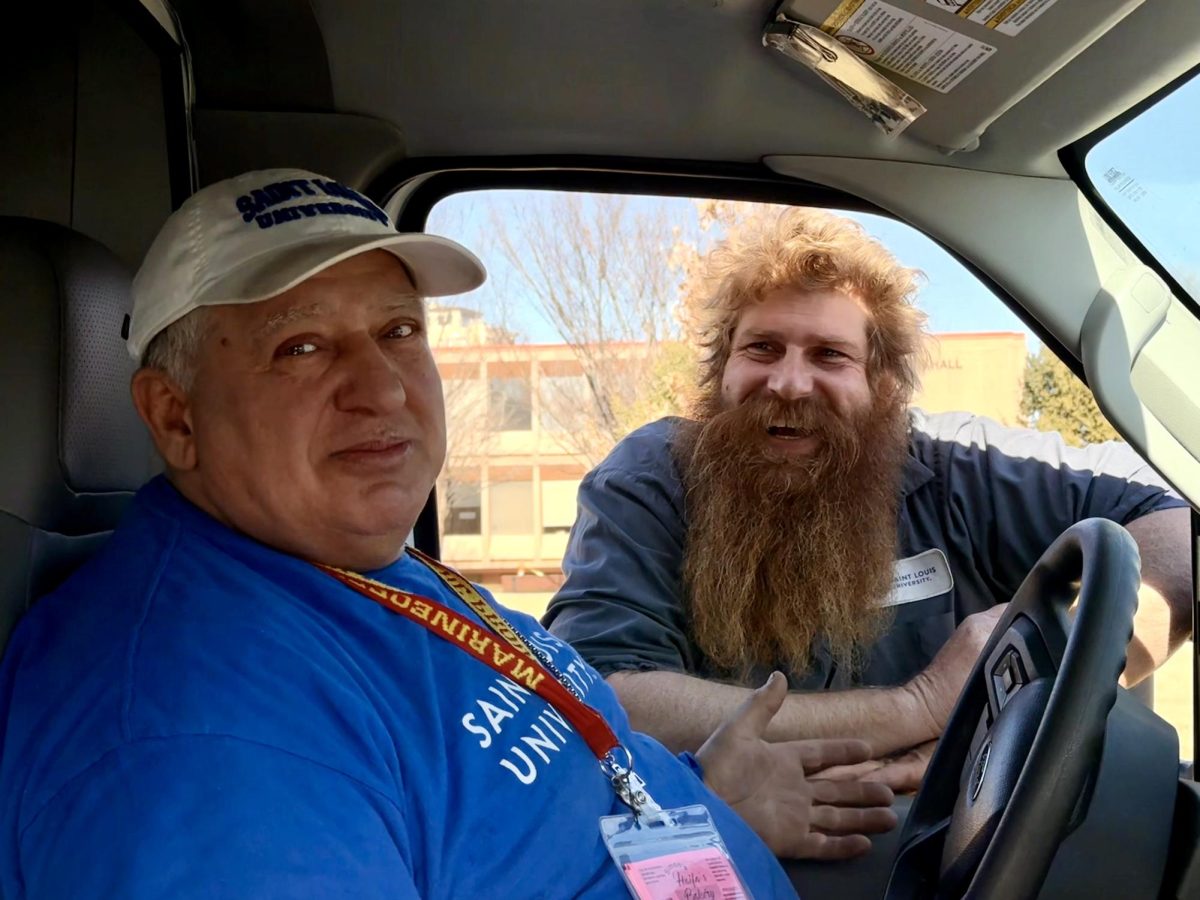
Little appreciation and a ‘shrinking’ department
In just the last two years, around six people left the SLU Grounds Services department, leaving the team understaffed.
An outdated paragraph on the SLU Grounds Services website says 23 people care for campus grounds, which workers say is the ideal number for getting the job done. With Wessel marking the latest exit, however, just eight people are now responsible for mowing, irrigating, planting, mulching and plowing north campus.
“Our department, it’s really shrinking,” Tucker said.
With a $20 million budget deficit that is largely due to lower student enrollment, Tucker said SLU should reinvest in the grounds team.
“When people come to tour, campus is one of the reasons they chose SLU because it looked nice, the flowers and everything was, you know, looking sharp. How are we going to do that [with less workers]? That’s not going to help recruit more people,” Tucker said.
Weindel agrees that creating a campus aesthetic and a “curb appeal” is important, especially for incoming students.
“I want people to walk on the campus and enjoy, you know, think they’re in an oasis,” Weindel said.
However, a university-wide hiring freeze implemented last semester because of the deficit means there is not enough money to hire additional staff, Weindel said. Last fall, the department moved the remaining few groundskeepers from south campus to north campus, and brought on contractors to work as needed on the former.
Outsourcing jobs is a worrying sign, some of the remaining groundskeepers say.
Part of the reason so many grounds workers have left in recent years is low pay. Last April, grounds workers, janitorial and maintenance employees protested a wage package offered by the university.
After rejecting the proposal four times, a contract was passed in May that gave all service workers a $3.15-an-hour raise over four years. Previously, pay for groundskeepers started at $18.55 an hour. The contract also included better job protection language such as a 60-day notice if the university plans to subcontract work.
It is not just low pay that pushed Wessel and several others to leave their jobs. Another major factor was a lack of appreciation.
“It’s nice to be told , ‘Hey, we really appreciate what you guys are doing,’ and that just evaporated over time,” Wessel said.
Just three weeks into his new job, Wessel said he has felt more valued and heard more words of appreciation than in his 18 years at SLU.
“This ship’s sinking,” Wessel said, referring to the grounds department. “I’m like one of the rats. When the ship goes down, they say the rats are some of the first to jump because they’re down in the belly of the ship when the water comes.”
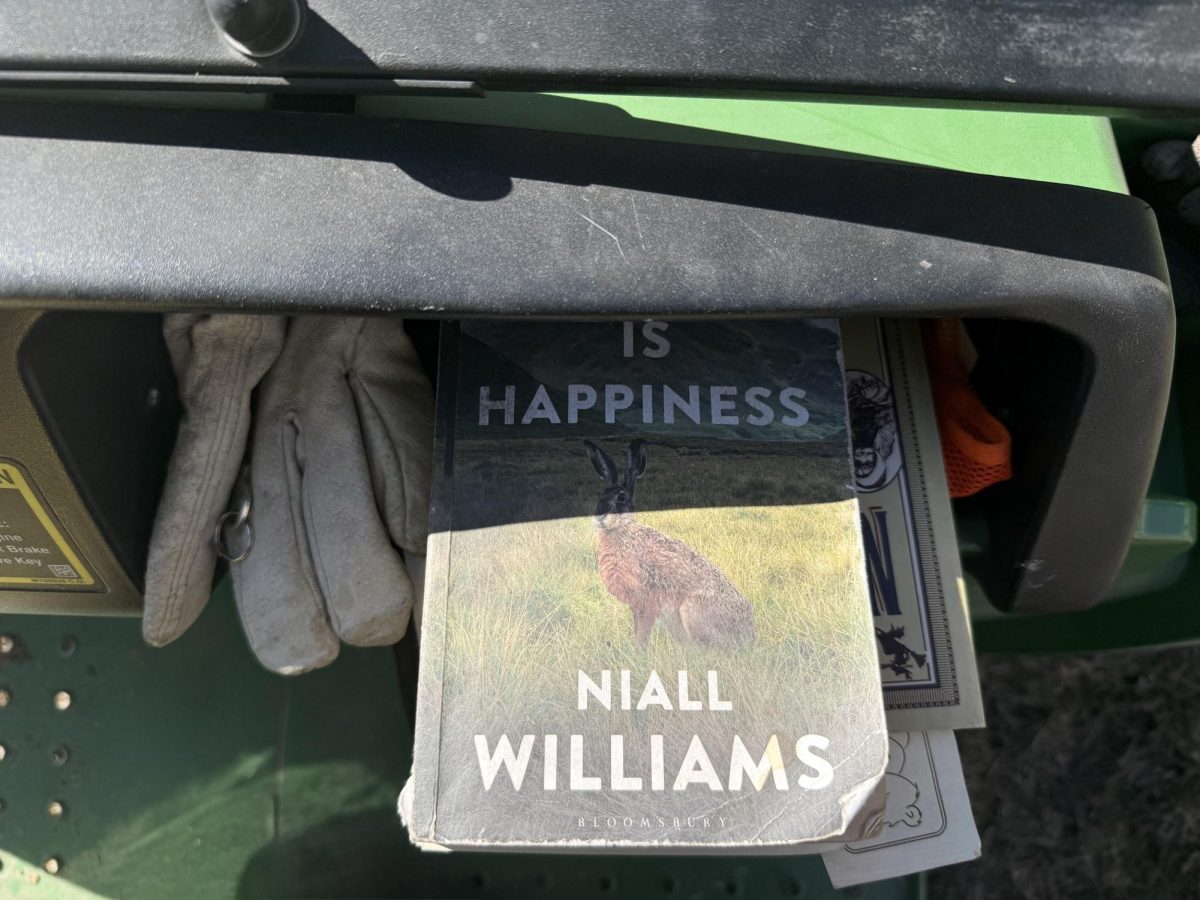
A little plot filled with life
During his time on campus, Wessel introduced more sustainable practices, encouraging his team to use less fertilizer and plant native plants that require less maintenance. His co-workers appreciated his ideas, but Wessel said there were limits to what he could do.
There was one place, however, where Wessel made an impact he’s especially proud of.
Nestled behind Hotel Ignacio near a university-owned parking lot on Locust Street was a gravel plot that for years was sprayed with herbicide to kill the persistent weeds.
But a few years ago, Wessel did something different. He planted penstemon and buttonbush, colorful native plants that don’t need irrigation and can sustain themselves.
Now, the little plot is filled with life, including bees, birds and butterflies.
“That makes me quite happy,” Wessel said.
If it were up to Wessel, more of SLU’s campus would be an oasis for native plants and creatures.
“If this were all native stuff,” he said, pointing to the grass field between Morrissey Hall and Chaifetz Business School, “You’d see so many more birds, you’d see so many more insects.”
Still, he hopes students, staff and visitors who walk across campus appreciate the existing nature on campus.
“Too many people come out and sit, but then they don’t really look around them and don’t really pay attention. If you’re gonna go out to nature, sit down in one spot, use all five senses, and be quiet and just think,” Wessel said. “And then, you know, everything gets better.”
And while sitting to read a book or rest on a hammock, Wessel also wants the SLU community to also appreciate the workers who shape the campus’ look and feel.
“Understand just the amount of hard work that goes into everything that we have done over the years. Understand and give thanks even if you don’t know who we are,” Wessel said.









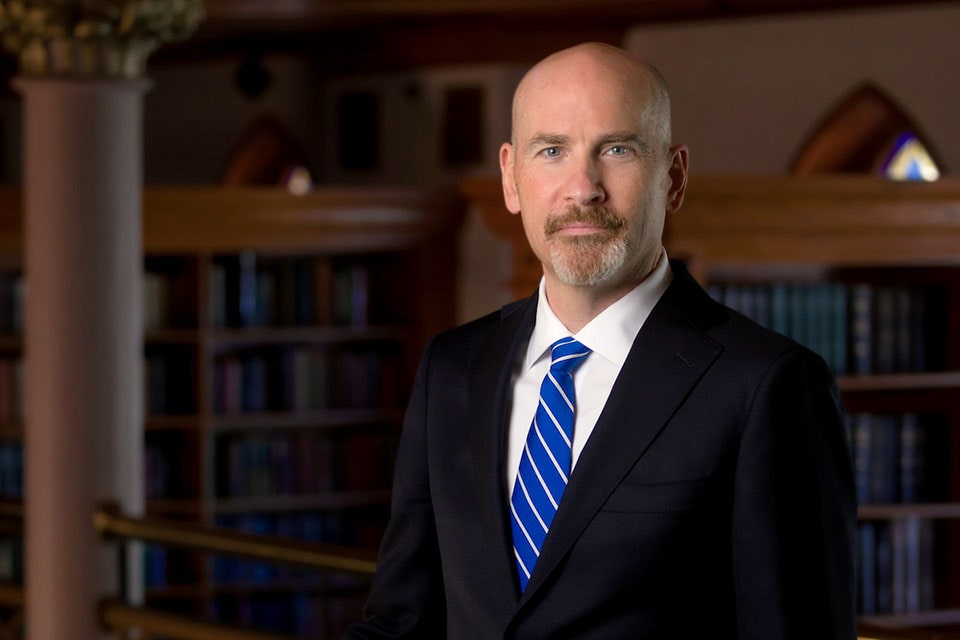


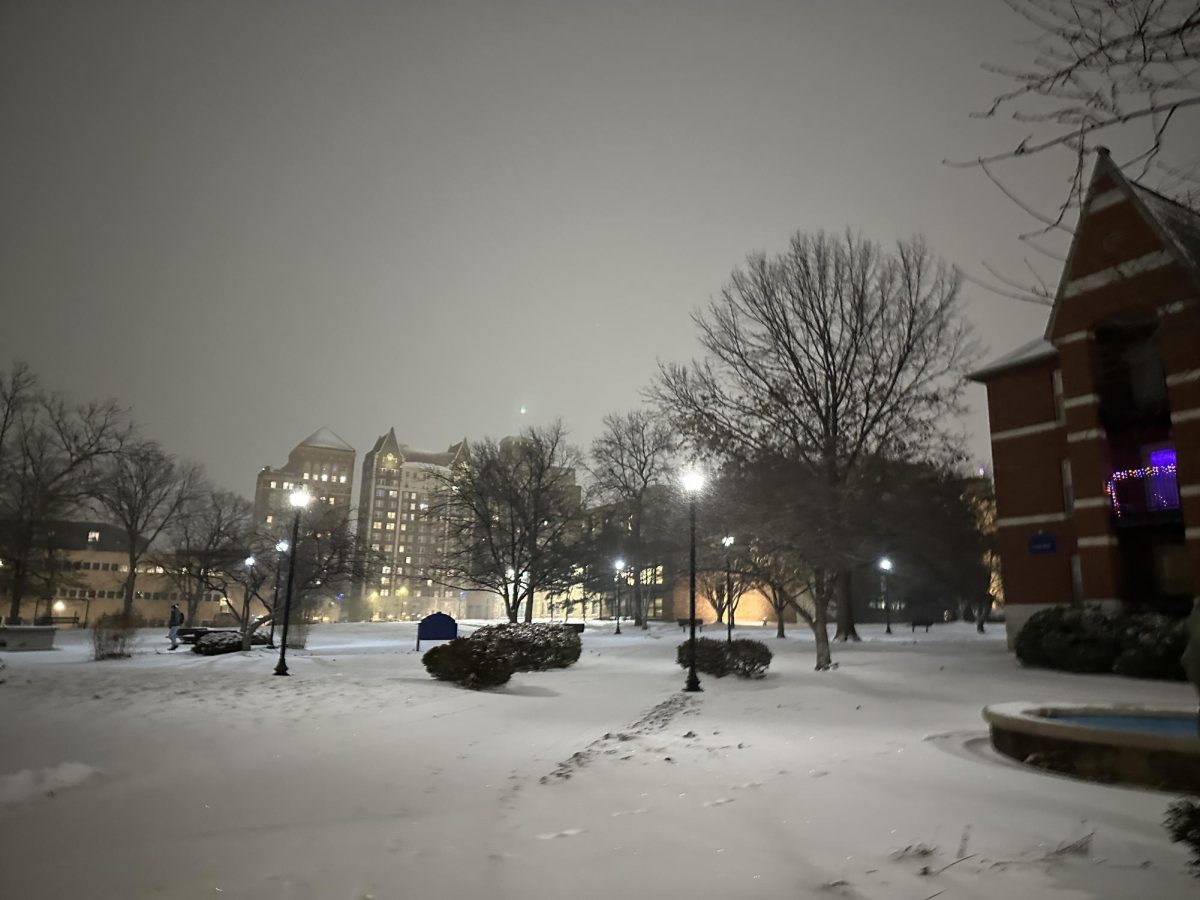
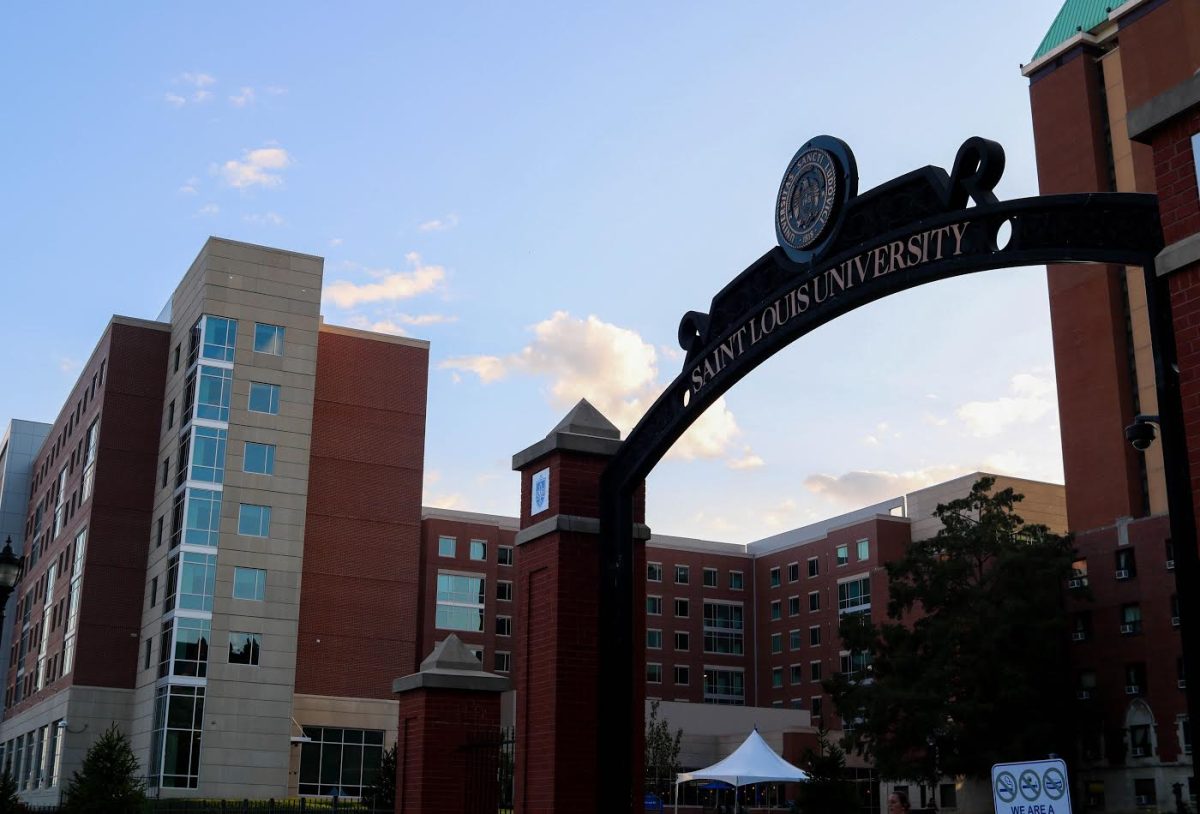
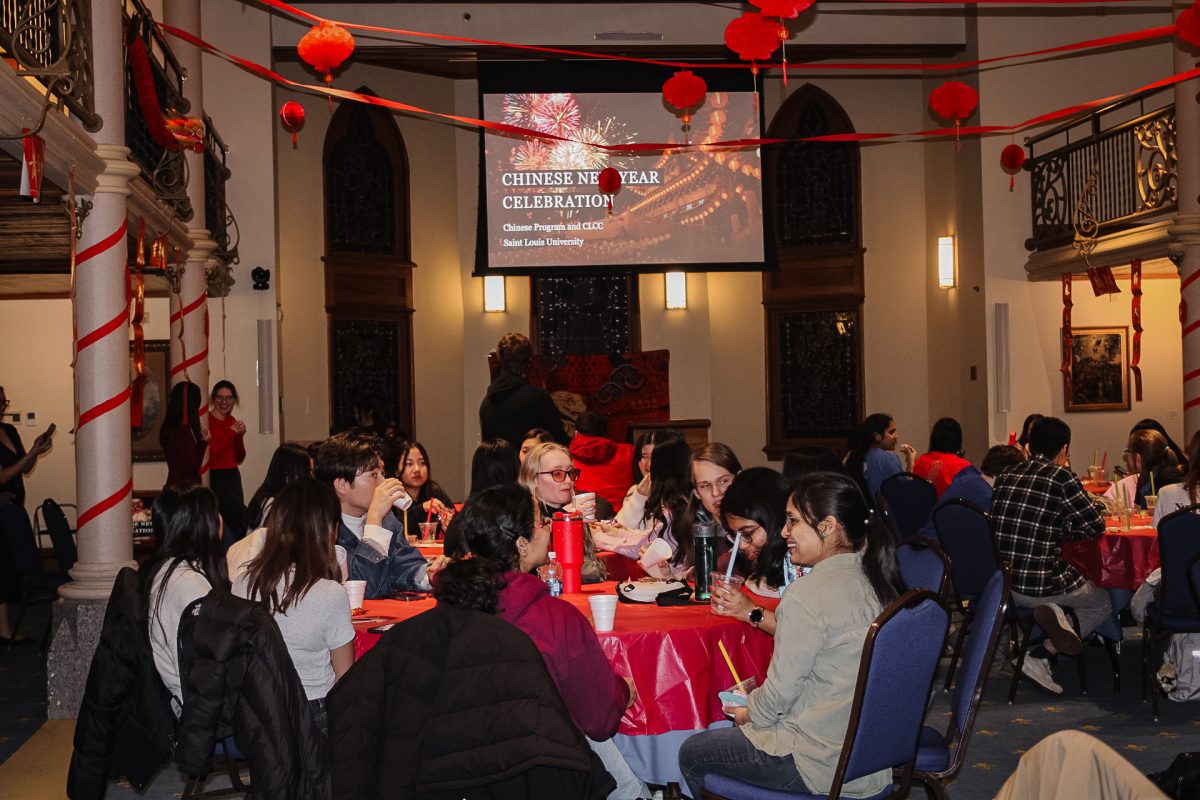
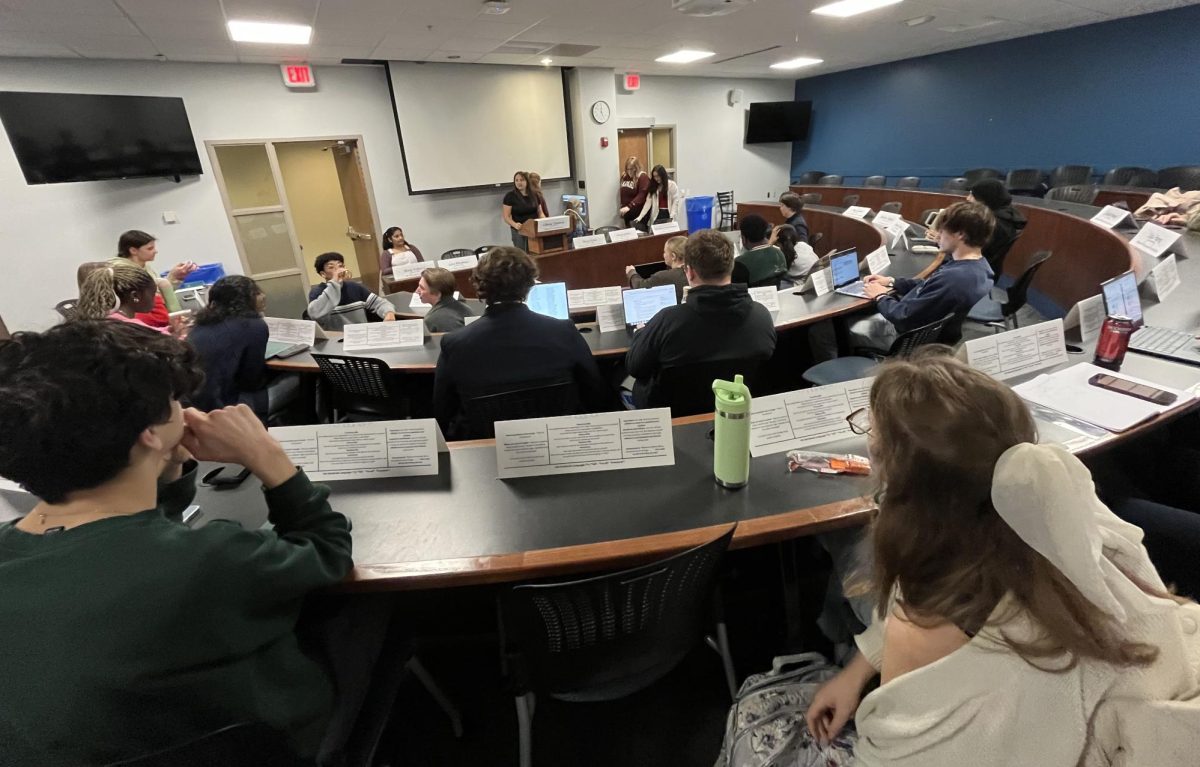

Mary Beth Williams • Feb 24, 2025 at 8:14 pm The University News Pick
A deep thank you to Ulaa Kuzuez and the student journalists of SLU for covering issues of such vital importance to the extended SLU community. The environment is much more complex than simply cosmetic – the environment that Tommy Wessel and his fellow groundskeepers create and maintains for students, teachers and others is vital and translates into students and teachers feeling engaged and good about where they live/work each day. Thanks for highlighting the importance of the Groundskeepers. It is so gratifying to read about Tommy Wessel’s passion for his work and to hear from those who’s lives he touched during his 18 years at SLU. “Trustworthy”, always working hard to make an impact, serving as the “glue” in addition to being a continual reader and learner – all i can say is “WOW” – Tommy Wessel leaves really big shoes to fill for the Groundskeepers who follow him. Hope the Groundskeepers (including Clint Tucker and Dave Eaton) who remain at SLU realize how grateful we all are for their commitment, hard work and caring for the campus….THANK YOU! To Tommy Wessell – Grateful and Happy for all you will do for the native habitats in Missouri in the days and years ahead !!
CPW • Feb 24, 2025 at 2:03 pm
The GOAT has left the building.
MDW • Feb 24, 2025 at 5:12 pm
Great article about a really great guy who has and always will make a real difference. His nurturing is apparent in the landscaping, environment, and in all his relationships.